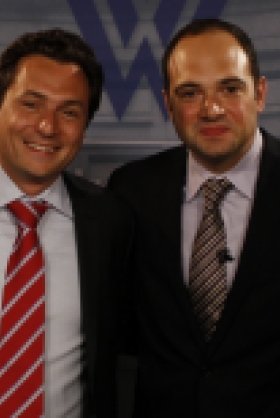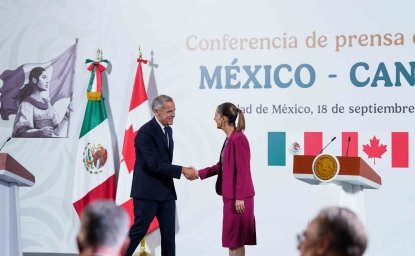Mexico’s 2012 Elections: Key Issues and Critical Questions Now and Beyond


With mere days before Mexico’s July 1st federal election the country of 114 million, with roughly 77 million eligible voters, is on the cusp of deciding what direction it will take for the next six years and possibly beyond. An election that just weeks ago appeared settled with a clear frontrunner and little movement in the polls has more recently reflected new dynamics in the race and added an element of uncertainty.
While still holding a commanding lead in most polls, the former governor of the State of Mexico (Peña Nieto) has begun to see the aura of invincibility surrounding his campaign erode as the electorate increasingly focuses on the choices before them. Additionally, gaffes and missteps by his campaign, the spontaneous emergence of a tech savvy anti-establishment student movement, and two scandals have chipped away at public perceptions that his election was inevitable.
Two recent polls have also cast doubt on the candidate’s standing suggesting the race could be closer than previously thought. A poll by the Reforma newspaper placed Andres Manuel López Obrador, widely known as AMLO, just 4 points behind Peña Nieto. While these results are well outside the average of other major polls, where Peña Nieto leads by an average of 14 to 16 points, the Reforma poll suggests there might be some volatility in public opinion. Additionally, all polls seem to suggest that AMLO has moved into second place.
Running as a coalition candidate for the Party of the Democratic Revolution (PRD), Labor Party (PT), and Citizen’s Movement (MC), AMLO and the PAN’s Vázquez Mota continue to battle to become the main alternative to Peña Nieto and the return of the PRI. In recent weeks AMLO has tried to position himself as the only real candidate of change since the other two major parties have held power for the past twelve years (PAN) and prior to that, 71 years (PRI). He also sought to reduce negative perceptions about him, moving from the candidate with the highest negatives among the main candidates to now near the bottom. As a result, he has tended to benefit most from external developments such as the emergence of an outspoken and unaligned student movement (#YoSoy132), a scandal involving a former PRI governor, and the emergence of damming documents, as yet unverified, that purport to show collusion between Peña Nieto and Mexico’s leading television network Televisa.
In this context, undecided voters, those on the sidelines and the previously uninvolved have begun to shift election dynamics. The election has effectively gone from a boring and predictable affair with the only remaining question the margin of victory, to one in which the final election outcome may not be clear, with a modicum of uncertainty injected into the process. The remaining question is whether momentum and passion will swing decisively to AMLO or Vázquez Mota enabling either to overcome the vaunted organizational capacity of the PRI and Peña Nieto’s commanding lead in the polls.
Whether AMLO or Vázquez Mota emerges as the primary alternative to Peña Nieto will depend in large part on the “second choice preferences” of each candidate’s supporters. Possibly the biggest challenge for both will be to convince voters to support them as the best alternative to Peña Nieto when their candidate no longer seems violable. For example, if PAN supporters decide their candidate cannot win, will they vote for Peña Nieto to ensure that the country does not move to the left with AMLO, or will they vote for AMLO because of their historic antipathy to the PRI and refusal to return power to the party they defeated in 2000. Most polls suggest that PAN voters lean to the PRI as their second choice, and a recent statement from former President Vicente Fox, the first one to defeat the PRI, seemed to call on PAN sympathizers to support the PRI over the PRD and AMLO.
Author

Director of Policy and Strategic Initiatives, Seattle International Foundation

Mexico Institute
The Mexico Institute seeks to improve understanding, communication, and cooperation between Mexico and the United States by promoting original research, encouraging public discussion, and proposing policy options for enhancing the bilateral relationship. A binational Advisory Board, chaired by Luis Téllez and Earl Anthony Wayne, oversees the work of the Mexico Institute. Read more




